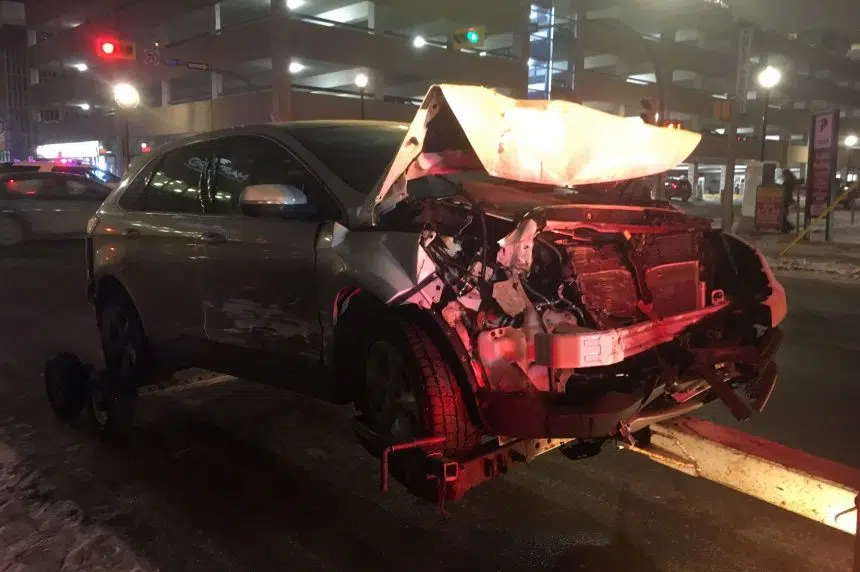As new vehicles get more and more complicated, SGI is changing its standards on how to fix them — but that could end up closing some auto body shops, especially in small-town Saskatchewan.
In a memo obtained by 980 CJME, SGI announced to auto body shops that it would be changing accreditation standards to qualify for SGI work. As of April 2020, shops will have to be certified by the repair industry or vehicle manufacturers to do repairs on their models.
For many shops in Saskatchewan, that could mean a lot more training, workers and machinery.
“That hurts a lot of shops,” said Trevor Rempel, with TnT Autobody in Indian Head.
The bulk of the work his shop does is through SGI, and without making the changes, the shop won’t be able to get that work anymore.
Rempel says he hasn’t given it much thought yet, but estimated it could cost him hundreds of thousands of dollars to get up to those standards and acquire the equipment.
“For one item is going to be probably close to $20,000, just for one item that is required,” he said.
Rempel said he hasn’t had many problems with newer vehicles coming in that he doesn’t know how to fix. He said every repair is different, so you’re learning something new on every vehicle.
With these new requirements, Rempel said he could have to shut down the shop.
“We’ll all have to go to the city … the surrounding area will hurt because of it,” he said.
He said he’ll have to go to the city to find work, and people in the town will have to travel the hour to Regina when they need repairs to their vehicles.
SGI says it’s making sure this doesn’t turn into a problem
According to the head of SGI, Andrew Cartmell, new vehicles are more complex than they were even five or 10 years ago, so he said these changes are all about safe and quality repairs.
“The idea behind this is to ensure that, as these vehicles become more complicated, that when a collision happens, that the repairs are done on them are done to a level and a standard that gets them back to their pre-collision condition,” Cartmell said.
Cartmell said the current situation is still working because there is a mix of older and new cars on the road, but as more new vehicles get on the road, more and more shops will need to be identified which can do those specific repairs.
Cartmell said right now, there aren’t enough shops at the new standard for new vehicles, so SGI is using this change to encourage shops to get to that standard to prevent problems in the future.
When it comes to the cost, Cartmell said it could be in the thousands of dollars, depending on where the shop is at now.
SGI is still open to discussion, but Cartmell said it’s not in the Crown corporation’s business model to financially support private businesses.
He suggested shops look at banding with other shops, or possibly leasing some of the equipment.
Cartmell said SGI hopes the shops don’t shut down, because the company does want to make sure customers have as many options across the province as possible.
“At the end of the day though, we do believe they have to make a decision whether they want to make the level of investment required for them, or not,” he said.
Industry association agrees
The executive director of the Saskatchewan Association of Automobile Repairers agrees with SGI.
“The car you’re driving today is totally different than the car that was on the road five years ago even,” said Tom Bissonnette. “Those computerized components require another level of experience and equipment and training.”
He explained manufacturers are making vehicles lighter to get better fuel economy, so they’re using different components like aluminum, magnesium, and carbon fibre which require different kinds of repair procedures.
Bissonnette said it’s sad the change will affect so many people, but they have to be sure the vehicles are getting fixed properly.
“What is SGI supposed to do? Are they supposed to ignore the fact that people don’t have the equipment or the training and just let them fix your car the way they feel like it? Or do they have to put guidelines in place and say this is what you have to have?” he said.
According to Bissonnette, allowing shops to fix vehicles without necessarily having the proper training is a liability issue.











